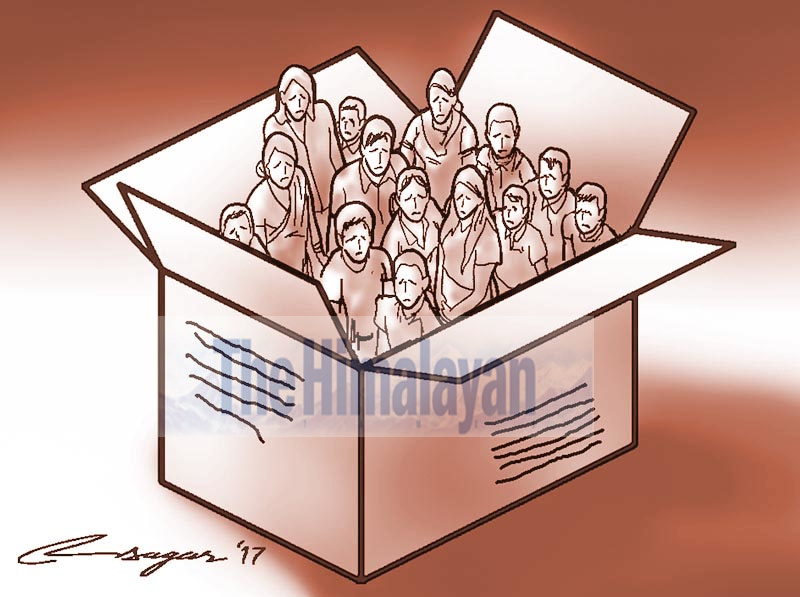Nepal falls behind in combating human trafficking, says NHRC
Kathmandu, August 14
Human trafficking is not only a heinous crime, but also a vicious form of exploitation facing Nepali youths and children. Government’s effort and investment have fallen short in combating the crime.
A report on ‘Trafficking in Persons-2019’ recently released by the National Human Rights Commission said crime of human trafficking has yet to get due attention of the government. Government has assigned the responsibility of curbing human trafficking mainly to the Ministry of Women, Children and Senior Citizens. The Ministry of Home Affairs, Ministry of Labour, Employment and Social Security and Ministry of Foreign Affairs are also responsible in the fight against the crime. “The budget appropriated to the MoWCSC for anti-human trafficking programmes and activities in the last fiscal was below Rs 10 million. It is estimated that around 35,000 persons, including 15,000 women and 5,00 girls were victims of human trafficking in 2018-19. If the appropriated amount is divided by Rs 35,000, budget per trafficking victim will be less than Rs 286. This petty investment meant for ending human trafficking is ridiculous in itself,” the report stated.
The report said that around 1.5 million population was at risk of trafficking in 2018-19 and nearly 35,000 of them ended up in various forms of trafficking. “If the budget of Rs 10 million is distributed among the vulnerable people, they will get around seven rupees each. The investment made by the government is too little to address the problems of trafficking,” it said. Previously Nepali women and girls trafficked by organised crime syndicates used to end up in Indian cities, New Delhi and Mumbai. Now trafficking of Nepali girls and women is not limited to neighbouring countries. Web of trafficking for worst forms of slavery and sexual exploitation has gradually spread across African and Latin American countries. Human traffickers have been capitalising on lack of employment opportunity in the country, low education level and poverty to lure women, girls and men into foreign countries with the promise of lucrative jobs and better future. The victims feel cheated only when they are left to fend for themselves in a foreign country.
The report also paints a bleak picture on implementation status of recommendations made by the NHRC to the government in regard to control of human trafficking, rescue and assistance of victims and their access to justice. “Most of the recommendations are limited to paper as the concerned authorities pay no or less attention to them. Even the rights body is not informed about the progress on implementation of the recommendations,” it read






